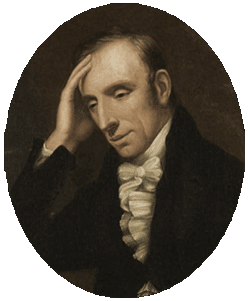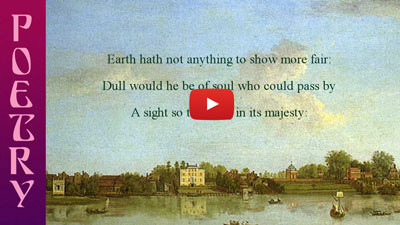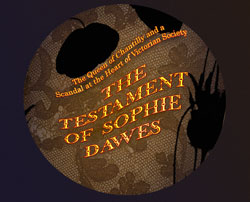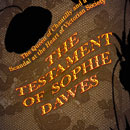Lines capturing a special moment of stillness
Transcript
Earth has (hath) not anything to show more fair:
Dull would he be of soul who could pass by
A sight so touching in its majesty:
This City now doth, like a garment, wear
The beauty of the morning: silent, bare,
Ships, towers, domes, theatres, and temples lie
Open unto the fields, and to the sky;
All bright and glittering in the smokeless air.
Never did sun more beautifully steep
In his first splendour, valley, rock, or hill;
Ne'er saw I, never felt, a calm so deep!
The river glideth at his own sweet will:
Dear God! the very houses seem asleep;
And all that mighty heart is lying still!
Dull would he be of soul who could pass by
A sight so touching in its majesty:
This City now doth, like a garment, wear
The beauty of the morning: silent, bare,
Ships, towers, domes, theatres, and temples lie
Open unto the fields, and to the sky;
All bright and glittering in the smokeless air.
Never did sun more beautifully steep
In his first splendour, valley, rock, or hill;
Ne'er saw I, never felt, a calm so deep!
The river glideth at his own sweet will:
Dear God! the very houses seem asleep;
And all that mighty heart is lying still!
Background -
a brief biography of the poet William Wordsworth
● Wordsworth was born in 1770 in Cumbria, in the north of England where the spectacular and rugged landscape inspired in him an enduring love of nature.
● He studied at Cambridge University and began writing verse at an early age, eventually settling in the south-west of England where, together with his friend and fellow poet Samuel Coleridge, he established what was to become the Romantic Movement in English poetry.
● He also travelled extensively in France, Switzerland and Germany where he was inspired by the radical political sentiments prevalent on the continent at the time.
● He studied at Cambridge University and began writing verse at an early age, eventually settling in the south-west of England where, together with his friend and fellow poet Samuel Coleridge, he established what was to become the Romantic Movement in English poetry.
● He also travelled extensively in France, Switzerland and Germany where he was inspired by the radical political sentiments prevalent on the continent at the time.
● In 1799, he and his sister Dorothy, to whom he was very close, moved to Grasmere in the Lake District where he continued to write some of his most inspired poems.
● He married in 1802 but two of his children died in infancy. And with increasing years, the radical political views he had held as a young man altered and mellowed.
● He was awarded the title of Poet Laureate in 1842, but his best work was by then already behind him. He died in 1850 and was buried in his beloved Grasmere.
● He married in 1802 but two of his children died in infancy. And with increasing years, the radical political views he had held as a young man altered and mellowed.
● He was awarded the title of Poet Laureate in 1842, but his best work was by then already behind him. He died in 1850 and was buried in his beloved Grasmere.
Themes and ideas for Interpretation
● This piece is a fine example of the Romantic movement in poetry - one not necessarily concerned with romantic love, but rather with an appreciation of the forces of nature in all their sublimity and sometimes savage beauty. It was a sentiment that reached it’s peak during the latter 18th and early 19th centuries, the very world into which Wordsworth was born.
● Despite its full title 'Composed upon Westminster Bridge September 3rd, 1802,' the poem was most likely conceived in July of that year when, early one morning, the poet and his sister Dorothy were travelling by carriage across the river from Westminster heading southwards upon a journey that would take them to France. The event is recorded in an entry from Dorothy's journal for that day:
"... we left London on Saturday morning at 1/2 past 5 or 6, the 31st July (I have forgot which) we mounted the Dover Coach at Charing Cross. It was a beautiful morning. The city, St. Paul’s, with the river, and a multitude of little boats, made a most beautiful sight as we crossed Westminster Bridge. The houses were not overhung by their cloud of smoke, and they were spread out endlessly, yet the sun shone so brightly, with such a fierce light; that there was something like the purity of one of nature’s own grand spectacles.”
Dorothy Wordsworth, The Grasmere Journal, 31 July 1802
So something must have gone awry in Wordsworth's recollections between the date of composition and publication some years later in 1807. The words describe that unique stillness of an early summer's morning just after the sun is up, and often found in a busy city such as London even to this day. In September, it would scarcely have been daylight at that hour of the morning. It really is a height-of-summer poem, not an early autumnal one.
● The poet stands and reflects on a moment of early-morning stillness upon one of the great bridges spanning the river Thames. He compares the power and splendour of certain natural phenomena, ‘valley rock or hill,’ with the latent intensity of the city, like a mighty engine or ‘heart’ at rest.
● He is surprised, amazed and yet comforted by the peace and stillness (the smokeless air) of his surroundings, usually so bustling and loud.
● The piece itself, which is actually a sonnet (three sets of 4 lines, plus 2 at the end) has been analysed extensively, and some have drawn attention to certain paradoxes - such as, in lines 4 and 5, demanding why the city can wear something 'like a garment' and yet be bare at the same time? Or, in the final line, how can a heart possibly be lying still when it is in fact always beating?
These observations are perhaps understandable when separated from the modern mind-set by 200 years. But the Romantic movement in the arts was, by its very nature, full of contradictions. It sought to comprehend reality through feelings every bit as much as via rational thought. The city is clothed in the morning, but bare of activity and of people. Simple as that. And when the poet comments on the stillness of a heart, he is not urging that it cease to beat, but only that it evinces its natural condition of calm and restfulness.
I think it's best to just accept poetry of this kind, to turn our mental clocks back a little and allow the magic of the words to speak for themselves.
● Bridges have always been regarded as symbols of transition, ways of journeying from one state to another, both physically and in thought. They can also be places of beguiling tranquillity, guiding the mind from rational consciousness towards the vast reality that exists on 'the other side,' set apart from normal perception.
● Wordsworth urges us to compare the ordinary aspect of the city to the most sublime aspects of nature which for him engenders a moment of profound understanding and peace. A golden moment in time, during which we are invited to share in a fleeting glimpse of transcendental vision. And that is why it is surely one of the English language's finest poems.
● Despite its full title 'Composed upon Westminster Bridge September 3rd, 1802,' the poem was most likely conceived in July of that year when, early one morning, the poet and his sister Dorothy were travelling by carriage across the river from Westminster heading southwards upon a journey that would take them to France. The event is recorded in an entry from Dorothy's journal for that day:
"... we left London on Saturday morning at 1/2 past 5 or 6, the 31st July (I have forgot which) we mounted the Dover Coach at Charing Cross. It was a beautiful morning. The city, St. Paul’s, with the river, and a multitude of little boats, made a most beautiful sight as we crossed Westminster Bridge. The houses were not overhung by their cloud of smoke, and they were spread out endlessly, yet the sun shone so brightly, with such a fierce light; that there was something like the purity of one of nature’s own grand spectacles.”
Dorothy Wordsworth, The Grasmere Journal, 31 July 1802
So something must have gone awry in Wordsworth's recollections between the date of composition and publication some years later in 1807. The words describe that unique stillness of an early summer's morning just after the sun is up, and often found in a busy city such as London even to this day. In September, it would scarcely have been daylight at that hour of the morning. It really is a height-of-summer poem, not an early autumnal one.
● The poet stands and reflects on a moment of early-morning stillness upon one of the great bridges spanning the river Thames. He compares the power and splendour of certain natural phenomena, ‘valley rock or hill,’ with the latent intensity of the city, like a mighty engine or ‘heart’ at rest.
● He is surprised, amazed and yet comforted by the peace and stillness (the smokeless air) of his surroundings, usually so bustling and loud.
● The piece itself, which is actually a sonnet (three sets of 4 lines, plus 2 at the end) has been analysed extensively, and some have drawn attention to certain paradoxes - such as, in lines 4 and 5, demanding why the city can wear something 'like a garment' and yet be bare at the same time? Or, in the final line, how can a heart possibly be lying still when it is in fact always beating?
These observations are perhaps understandable when separated from the modern mind-set by 200 years. But the Romantic movement in the arts was, by its very nature, full of contradictions. It sought to comprehend reality through feelings every bit as much as via rational thought. The city is clothed in the morning, but bare of activity and of people. Simple as that. And when the poet comments on the stillness of a heart, he is not urging that it cease to beat, but only that it evinces its natural condition of calm and restfulness.
I think it's best to just accept poetry of this kind, to turn our mental clocks back a little and allow the magic of the words to speak for themselves.
● Bridges have always been regarded as symbols of transition, ways of journeying from one state to another, both physically and in thought. They can also be places of beguiling tranquillity, guiding the mind from rational consciousness towards the vast reality that exists on 'the other side,' set apart from normal perception.
● Wordsworth urges us to compare the ordinary aspect of the city to the most sublime aspects of nature which for him engenders a moment of profound understanding and peace. A golden moment in time, during which we are invited to share in a fleeting glimpse of transcendental vision. And that is why it is surely one of the English language's finest poems.
Technical info’
Type of Poem =
a Petrachian, or Italian sonnet - that is, 14 lines compiled of an octave (8-line stanza) and a sestet (6 lines).Rhyme Scheme =
ABBA, ABBA, CD, CD. CDMeter =
iambic pentameterGeorgian novel
Neo-Victorian
Historical Novel
Victorian Gothic














